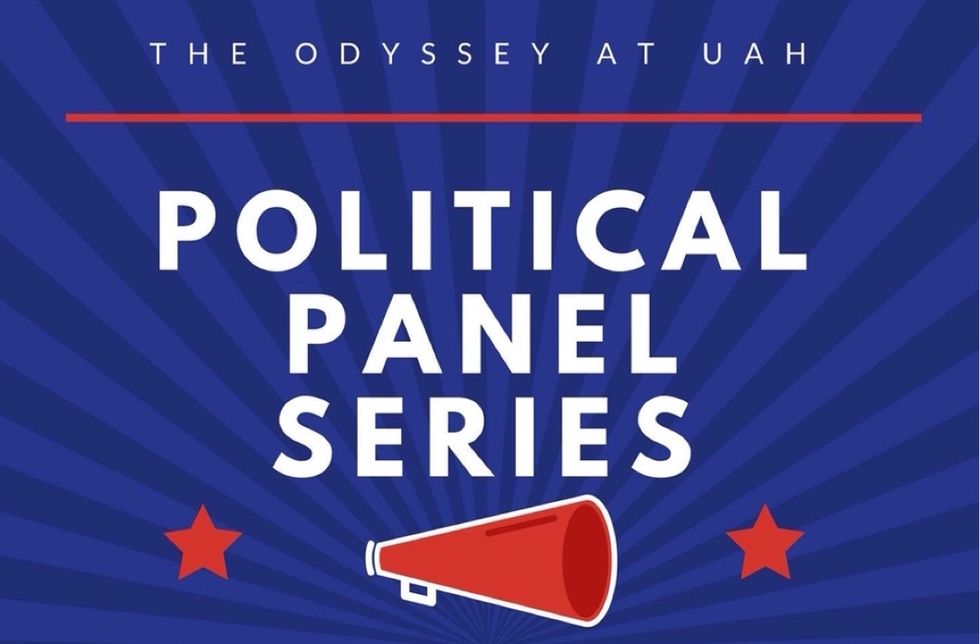Last Friday, the Odyssey community at the University of Alabama in Huntsville hosted a panel on race relations. Lately, race relations have arguably gotten worse, and populism has taken root in much of the US. There is little to no consensus on the role of organizations such as Black Lives Matter – are they necessary for the protection of civil rights, or are they just stirring the pot and engaging in demagoguery? It was questions such as that led the Odyssey chapter to organize the panel.
The Odyssey chapter invited six faculty members from across multiple departments to host the panel. Dylan Baun of the History department specializes in the Middle East, and fellow history professor Nicole Pacino focuses on Latin America. Representing the Sociology department were Christina Steidl and Bhavani Sitaraman. Steidl studies inequities in education and the labor market, while Sitaraman explores cross-cultural perspectives in sociology. The Political Science department sent Anne-Marie Choup, who specializes in Latin America and marginalized groups. Finally, Clarke Roundtree of the Communication Arts department rounded up the bunch, focusing on political rhetoric and discourse.
Black Lives Matter
Questions came from both the audience and the Odyssey chapter. The first main topic was on the role of Black Lives Matter and the alleged violence within the organization. I’m still not completely sure if BLM’s complaints are valid; on the one hand, people who attack or threaten police shouldn’t expect a slap on the wrist. Police have been rather fearful lately; some argue that there is no longer such thing as a “routine traffic stop.” Any traffic stop could end up being their last. Even if the original pretense for the stop is flawed, there’s a time and a place to challenge that and it’s called court.
However, BLM’s complaints might have some validity. Dr. Roundtree noted that in many cases, minorities are reluctant to call the police for fear of being mistaken for the perp. In addition, Roundtree argued that since the US is cracking down on illegal immigration, the number of Hispanics calling the police has dropped by 25 percent. Such fear can have severe negative impacts on law enforcement.
Cultural Appropriation vs Appreciation
Another main topic was cultural appropriation vs cultural appreciation. Some folks on the far left have chewed people out for borrowing elements of other cultures, arguing that it steals from those cultures. However, I and many others feel that, when done right, borrowing elements from other cultures can be a very good thing that is intended to honor and appreciate those cultures rather than cheapen them.
Dr. Sitaraman argued that borrowing elements of other cultures in itself is not bad. Using the recent BLM Pepsi ad as an example, Sitaraman said that Pepsi making profits off of a community without addressing their concerns is problematic because it turns the culture into a sort of prop. Dr. Pacino also noted that one can appreciate a culture without appropriating it, and vice versa. She argued that it’s really a matter of who benefits; when people play with a culture and discard it when finished, that’s problematic and disrespectful. For example, Indian Halloween costumes collapse an entire culture into a stereotype without really caring about the day-to-day life of that culture.
Islam and American-Islamic Relations
The third major topic was how Americans handle Islam. An audience member asked, “Do you think the way we handle Islam is rational?” Dr. Baun admitted that the reasons behind current perceptions and fears of Islam were understandable, albeit flawed. Islamic terrorists are exceptions, rather than norms, and events such as Pres. Trump’s immigration restrictions are based off those exceptions. The exceptions build the fear that feeds these policies, he concluded.
In addition, Dr. Steidl offered a psychological point of view. She argued that humans misunderstand risks; they feel more at risk when they are not in control (I certainly do). Second, Steidl argued that when a risk impacts a large number of people at once, it is often overestimated. This is why the country spends more on the military and anti-terrorism instead of diabetes research, even though diabetes kills far more people, she concluded.
When another audience member followed up and asked whether Islam’s anti-LGBT teachings were grounds for fear, Dr. Baun was quick to respond effectively. He argued that Islam is quite a diverse religion (I noted that that diversity was not unlike Christianity) and that the majority of Muslims would either be shocked by such teachings or laugh at them. As for LGBT people, Baun stressed that Islam is not the only religion that takes issue with it (fair enough – I have a few problems with my own church).
Final Thoughts:
The above three topics were simply the most notable to me. While I do not always agree with the opinions of the panel members, I am very grateful for the opportunity to have a nice, reasonable discussion of race, ethnicity, and religion, and the relations regarding the same. While I still believe in personal responsibility and equal opportunity rather than equal outcome, I greatly enjoy hearing the “other side’s” argument.
By the way, next week, I am going to write a caricature Republican’s opinion of the same panel – basically, what your stereotypical conservative would say about the panel.

















